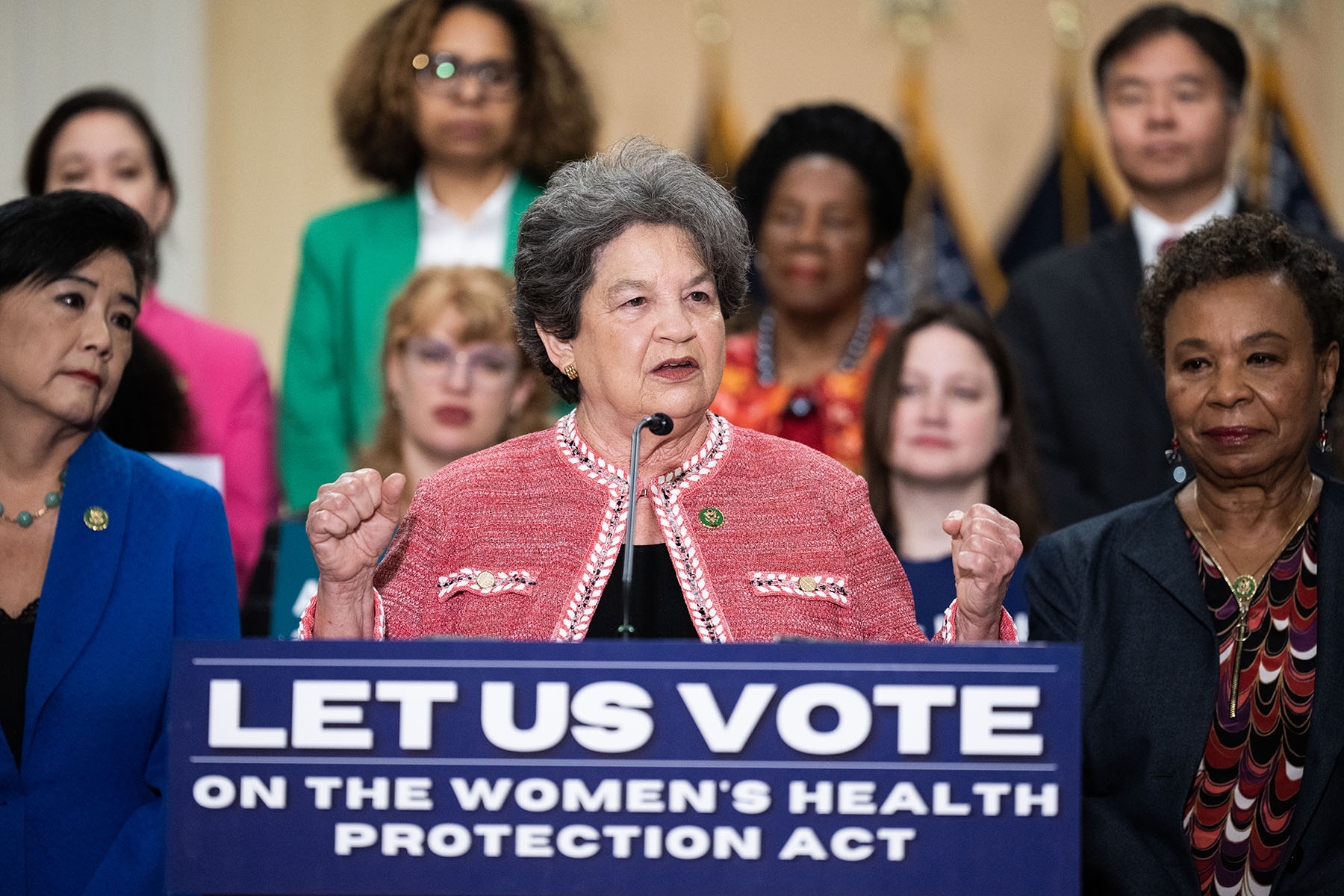In a rare move, the Republican-controlled House is recommending cutting all funding for the Department of Labor’s Women’s Bureau, which would shutter the more than 100-year-old federal agency tasked with improving conditions for women at work.
Next year’s budget recommendation from the House Labor, Health and Human Services, Education, and Related Agencies Appropriations Bill, which handles funding for the Department of Labor, is the first time in at least a decade that Congress has called for eliminating the bureau, according to the Congressional Research Service (CRS). The companion subcommittee in the Senate, however, has recommended allocating $23 million in funding for the bureau, about the amount it received last year. The two chambers will have to reconcile those recommendations before a final budget is decided. The bill is expected to go to a vote in the House next week before it would come against the Senate’s version.
In a letter to the House Appropriations Committee shared exclusively with The 19th, the Democratic Women’s Caucus said the decision to eliminate the Women’s Bureau would have a “devastating impact” on women and families in the country. The caucus is led by Chair Lois Frankel, Vice Chairs Teresa Leger Fernández and Nikema Williams, and Diversity and Inclusion Chair Sheila Cherfilus-McCormick.
“There is no justification,” they wrote in a letter to Chair Robert Aderholt, a Republican from Alabama, and ranking member Rosa DeLauro, a Democrat from Connecticut. “The termination of the Women’s Bureau would strip the federal government of the only agency mandated by Congress to represent the needs and interests of working women.”
The caucus leaders are asking the House to reconsider the cut and restore funding as the appropriations bills move forward.
Republicans said the House appropriations bill “reins in wasteful bureaucracy and enhances oversight and accountability” as part of a broader effort to cut costs across several agencies. Aderholt did not respond to requests for comment from The 19th about why the Women’s Bureau specifically was on the chopping block.
Overall, the recommendations from House Republicans allocates $9.8 billion, 29 percent less in funding to the Department of Labor than it received for fiscal year 2023 and nearly $6 billion less than President Joe Biden requested. The department’s labor enforcement agencies, including the Occupational Safety and Health Administration (OSHA), would see an 18-percent reduction. The bill also eliminates the department’s International Labor Relations Board, which works to strengthen global labor standards in part by promoting racial and gender equity. It is the largest funder worldwide of programs designed to combat child labor, forced labor and human trafficking.

The choice to cut the Women’s Bureau is a significant departure from recent trends. Over the past five years, funding for the Women’s Bureau has gradually increased. Last year saw the biggest bump: a nearly 30-percent increase to $23 million, according to CRS.
The most recent threat to the bureau was in 2017, when President Donald Trump proposed slashing funding by 76 percent. Ultimately, the bureau got $13.5 million, an 8-percent increase over the prior year.
For fiscal year 2024, Biden had requested $32.4 million, a funding increase of 41 percent from 2023 for the Women’s Bureau.
DeLauro said in a statement that the proposed elimination of the bureau, which has previously had bipartisan support, “is unprecedented and would harm women’s ability to advance in the workplace.”
“I am fighting against the elimination of the Women’s Bureau—and so many other extreme Republican cuts—that will undermine the progress of women and girls,” DeLauro said.
The Women’s Bureau has been in operation since 1920, when it was founded to create policies and standards to improve conditions for women at work, helping conduct research that formed the basis of early gender-based labor laws and key legislation on fair pay and paid leave.
Today, the agency collects and analyzes data on women at work and runs several grant programs, including the Women in Apprenticeship & Nontraditional Occupations program, which last year awarded $5 million to seven organizations developing apprenticeships for women in industries where they are underrepresented. The 2023 award was the largest in the program’s history, with funds going to programs in Alabama, Mississippi, North Carolina, Ohio, Rhode Island, Texas and Washington.
Jocelyn Frye, the president of the National Partnership for Women & Families, said in a statement that the loss of the agency would “mean the loss of a key advocate, and it would limit research and grant making abilities to tackle issues challenging women workers.”
The bureau also supports initiatives that work to close the gender pay gap, advance paid leave policies, alleviate the child care crisis and eliminate workplace harassment. This year, it awarded $1.3 million in grants to organizations working to prevent and respond to gender-based violence and harassment against women workers, and launched the only federal database comparing child care prices at the county level.
If the agency is ultimately defunded, it could, in theory, be funded again in future years. But it’s difficult and costly to restart something once it’s been eliminated.
Wendy Chun-Hoon, the director of the bureau, told The 19th in a statement that the bureau “has an important job to do and we’re going to continue to fight for policies that safeguard the interests of working women, advocate for equity and economic security for families, and promote quality work environments. For more than 100 years, we have been at the forefront of advocacy for working women,” she said. “We’re not going anywhere.”







